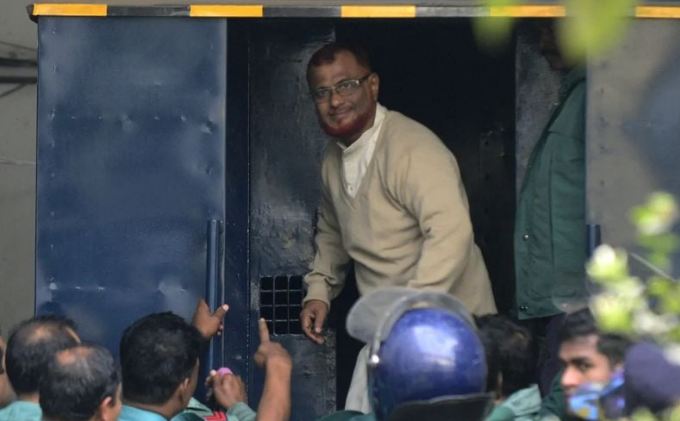DHAKA, MAY 27: Bangladesh’s Supreme Court has overturned the conviction of senior Jamaat-e-Islami leader ATM Azharul Islam, who had been on death row for over a decade for alleged crimes against humanity during the 1971 liberation war.
The court’s verdict, delivered on Tuesday, marks a major legal and political development in the South Asian country. Islam, who has been in custody since 2012, was ordered to be released immediately. He was one of six senior political leaders convicted during the tenure of former Prime Minister Sheikh Hasina.
Islam’s lawyer, Shishir Monir, called the ruling a rare instance of justice, noting that the five other senior political leaders — four from Jamaat-e-Islami and one from the Bangladesh Nationalist Party (BNP) — were executed before their appeals could be fairly considered.
“He got justice because he is alive,” Monir told reporters. “The appellate division failed to review the evidence in other cases of crimes against humanity.”
‘Genocide of Justice’
At a press conference following the verdict, Jamaat-e-Islami chief Shafiqur Rahman offered an apology “to anyone hurt by our behaviour or performance,” and spoke about the political repression the party endured under Hasina’s rule.
He accused the previous government of “judicial killings” through politically motivated prosecutions, alleging that Jamaat leaders were tortured in “safe homes” to extract false confessions.
Rahman referred to the entire process of the war crimes tribunal as a “genocide of justice,” as reported by The Daily Star.
International criticism
At least six top Jamaat leaders were executed between 2013 and 2016 following convictions by the International Crimes Tribunal, which was set up by Hasina’s government to prosecute individuals accused of war crimes in 1971. Human rights groups have repeatedly criticised the trials as flawed and politically motivated.
Those executed include Abdul Quader Molla (2013), Muhammad Kamaruzzaman, Ali Ahsan Mohammad Mujahid, and Salauddin Quader Chowdhury (2015), as well as Motiur Rahman Nizami and Mir Quasem Ali (2016).
Jamaat-e-Islami, founded in 1941 by Islamic scholar Abu A’la Maududi in British India, was banned in 1972 and barred from participating in elections in 2013 under Hasina’s government. The party has been a key ally of the BNP since the 2001 national elections.
In August 2024, just before she was ousted from power by a student-led uprising, Hasina banned Jamaat, its student wing Islami Chhatra Shibir, and other affiliated organisations under anti-terror laws. Ten days later, Jamaat reopened its offices for the first time in over a decade.
Road to Elections
Bangladesh’s interim government has pledged to hold national elections by June 2026. With the political landscape shifting rapidly, Jamaat-e-Islami and other parties are preparing for what analysts expect to be one of the most consequential elections in the country’s history.

















